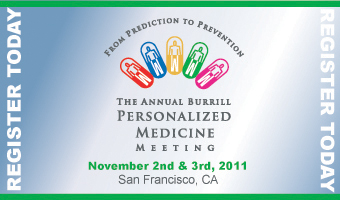“Without the benefit of proper medical counseling, patients may spend money on direct to consumer genetic tests needlessly or misinterpret the results of the tests, causing them to make unnecessary or unhealthy lifestyle changes.”
A U.S. Food and Drug Administration advisory panel has decided that direct-to-consumer genetic testing should be done under a doctor’s supervision. Although the FDA is not obliged to follow its advisory panels’ recommendations, it often does.
After two days of hearings on March 8 and 9, the Molecular and Clinical Genetics Advisory Committee, made up of 21 clinicians and academics, urged the FDA to require the ordering and interpretation of all genetic tests be done with medical supervision.
Regulation of genetic tests has been a murky area. Currently, the FDA regulates only those tests sold as diagnostic devices—manufactured by one company and then sold as a kit to a laboratory for genetic testing. Tests sold and performed by the same laboratory, which includes most direct-to-consumer tests, are not regulated.
Direct-to-consumer tests came under FDA radar last May when personal genetic testing company Pathway Genomics announced that its tests would be offered over-the-counter at Walgreens Drug stores.
“Whether it is a genetic test or not, selling a test over the counter without an FDA clearance or approval, particularly for the type of claims they have is not legal,” said Alberto Gutierrez, director of the FDA Office of In Vitro Diagnostic Device, Evaluation and Safety division, in an interview with the Associated Press at that time.
Walgreens quickly backed out of its deal with Pathway Genomics and the FDA soon issued letters to several personal genetic testing companies warning that they were marketing medical devices without the necessary review and approval from the agency.
The American Medical Association has stood behind physician supervision of genetic tests. In a letter sent to the advisory panel in advance of the hearings, it called for genetic testing to be conducted under the guidance of a physician, genetic counselor, or other genetics specialist.
“Without the benefit of proper medical counseling, patients may spend money on direct to consumer genetic tests needlessly or misinterpret the results of the tests, causing them to make unnecessary or unhealthy lifestyle changes,” says AMA Chair Ardis Hoven, in the letter. “While genetic testing can be a valuable tool to aid in diagnostic and therapeutic decisions, it should be done under the guidance of a physician, genetic counselor, or other genetics specialist. These health professionals are best prepared to help patients understand the results and the limitations of the tests, and what type of action should occur based on the results.”
Panel members expressed concerns about tests providing consumers with false reassurance and the ability of consumers to understand the complexities and subtleties of different tests on their own.
PHG Foundation, a U.K non-profit focused on genomics and population health, commented that the FDA might need to distinguish between carrier testing for heritable diseases and predictive testing for risk of adult-onset disease such as diabetes or response to a drug or treatment.
Ahead of the meeting, the foundation brought up the question of whether the concern is solely to protect the public, or whether there is fear that the growth of DTC testing will ‘undermine the physician-patient relationship.’ PHG feels that professional education about genetic data and clear information about genetic testing for consumers could be more effective than strict regulations.
Two of the leading purveyors of these tests, 23andMe and Navigenics, have publicly expressed the need for regulatory clarity. Whatever the FDA decides, it seems clear that some form of regulation of direct-to-consumer genetic tests is on the horizon.
March 11, 2011
http://www.burrillreport.com/article-a_step_closer_to_regulation.html






.gif)
